Wednesday, September 3, 2025, 5:45 - 6:45 pm
Terrace Suite Room, Summit (Convention Center)
Intersections of Indigenous Studies and STS
This Presidential Plenary features Dian Million and Candis Callison on generative dis/connections between Indigenous Studies and STS. Attuned both to overlaps between these domains and to divergences, this conversation will bring to the fore Indigenous perspectives situated in the specific region of the Pacific Northwest in its richness and diversity, and be a chance to explore some focal themes that would be of great interest to the conference attendees. These include race, gender, and class; mental and physical health; embodied knowing; and more, while foregrounding the poetic and the experiential.
Plenary Speakers
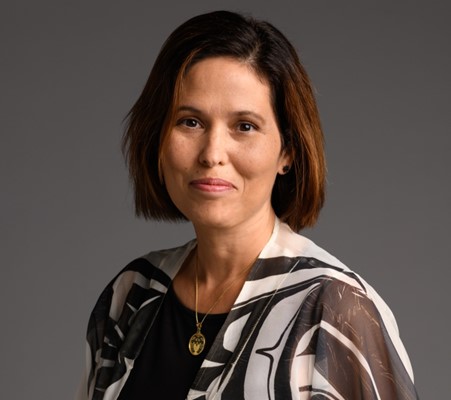 Candis Callison is the Canada Research Chair in Indigenous journalism, media, and public discourse and an Associate Professor at the University of British Columbia, jointly appointed in the School of Public Policy and Global Affairs and the Institute for Critical Indigenous Studies. A former journalist, Candis completed her Ph.D. in History, Anthropology, and Science, Technology, and Society, and a Master of Science in Comparative Media Studies at the Massachusetts Institute of Technology. She is the author of How Climate Change Comes to Matter: The Communal Life of Facts (Duke U Press, 2014) and the co-author of Reckoning: Journalism’s Limits and Possibilities (Oxford U Press, 2020). Candis is currently working on a long-term research project about the role of journalism and media in Arctic and northern regions. She is a regular contributor to the podcast, Media Indigena, and a member of the Tahltan Nation, centered in and extending out from the Stikine River watershed and Mount Edziza. A longtime 4Ser, Candis is grateful to be part of this gathering on Coast Salish territories and the ancestral lands of the Duwamish Nation.
Candis Callison is the Canada Research Chair in Indigenous journalism, media, and public discourse and an Associate Professor at the University of British Columbia, jointly appointed in the School of Public Policy and Global Affairs and the Institute for Critical Indigenous Studies. A former journalist, Candis completed her Ph.D. in History, Anthropology, and Science, Technology, and Society, and a Master of Science in Comparative Media Studies at the Massachusetts Institute of Technology. She is the author of How Climate Change Comes to Matter: The Communal Life of Facts (Duke U Press, 2014) and the co-author of Reckoning: Journalism’s Limits and Possibilities (Oxford U Press, 2020). Candis is currently working on a long-term research project about the role of journalism and media in Arctic and northern regions. She is a regular contributor to the podcast, Media Indigena, and a member of the Tahltan Nation, centered in and extending out from the Stikine River watershed and Mount Edziza. A longtime 4Ser, Candis is grateful to be part of this gathering on Coast Salish territories and the ancestral lands of the Duwamish Nation.
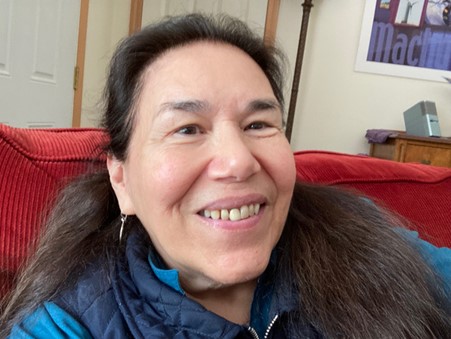 Dian Million is an Associate Professor in the Department of American Indian Studies and Affiliate faculty in Canadian Studies and the Comparative History of Ideas Program at the University of Washington in Seattle. She holds a Masters and Ph.D. in Ethnic Studies from the University of California, Berkeley. She is the author of Therapeutic Nations: Healing in an Age of Indigenous Human Rights (University of Arizona Press, 2013), along with several articles: “There Is A River in Me: Theory From Life,” “Intense Dreaming: Theories, Narratives and Our Search for Home,” and “Felt Theory: An Indigenous Feminist Approach to Affect and History.” Her recent chapter “Spirit as Matter: Resurgence as rising and (re)creation as ethos" appears in the collection Indigenous Resurgence in the Age of Reconciliation edited by Heidi Kiiwetinepinesiik Stark, Aimée Craft, and Hoku Aikau (2023). This chapter is key to a theme she continues to consider in more depth in her current book project entitled In The Spirit of Our Renegade Care. She centers her work on understanding the effect/affect racial capitalism/settler colonialism has on Indigenous family and community health in North America. Informed by two generations of Indigenous feminist scholarship, she seeks to illuminate the ways in which Indigenous life reorganizes and resurges in the face of colonial violence. Dian Million is Tanana Athabascan.
Dian Million is an Associate Professor in the Department of American Indian Studies and Affiliate faculty in Canadian Studies and the Comparative History of Ideas Program at the University of Washington in Seattle. She holds a Masters and Ph.D. in Ethnic Studies from the University of California, Berkeley. She is the author of Therapeutic Nations: Healing in an Age of Indigenous Human Rights (University of Arizona Press, 2013), along with several articles: “There Is A River in Me: Theory From Life,” “Intense Dreaming: Theories, Narratives and Our Search for Home,” and “Felt Theory: An Indigenous Feminist Approach to Affect and History.” Her recent chapter “Spirit as Matter: Resurgence as rising and (re)creation as ethos" appears in the collection Indigenous Resurgence in the Age of Reconciliation edited by Heidi Kiiwetinepinesiik Stark, Aimée Craft, and Hoku Aikau (2023). This chapter is key to a theme she continues to consider in more depth in her current book project entitled In The Spirit of Our Renegade Care. She centers her work on understanding the effect/affect racial capitalism/settler colonialism has on Indigenous family and community health in North America. Informed by two generations of Indigenous feminist scholarship, she seeks to illuminate the ways in which Indigenous life reorganizes and resurges in the face of colonial violence. Dian Million is Tanana Athabascan.
Threaded Panels
Threaded keynote panels bring together scholar-practitioners at different career stages to think together about pressing issues in STS: art scenes, bordering, and political water.
"Threaded" refers to an interwoven structure within each panel. Rather than giving stand-alone talks, panelists respond to one another, connecting to what comes before and shaping what comes after.
Prior to the conference, panelists share a "key note"--a short written or audiovisiual work about a term, concept, or problem that is central to their thinking about the panel's topic. Panelists will respond to each other's key notes during the conference session.
With some preference for scholars based "locally"--Seattle, Vancouver, and the North American West Coast--we have tried to platform scholars working on globally and methodologically diverse cases. Panels are not representative of the global STS community, and travel to and within the US is fraught.
Thursday, September 4, 2025, 10:40 am - 12:30 pm
327 - 329, Summit (Convention Center)
Engaging settings of imagination and creative possibility amid technological logics of capitalist racialization and militarism.
Chari Glogovac-Smith, University of California Santa Cruz
Tania Pérez-Bustos, National University of Colombia
Althea Rao, San José State University
Sadaf Sadri, University of Washington
Friday, September 5, 2025, 10:40 am - 12:30 pm
327 - 329, Summit (Convention Center)
Shifting knowledges of water above and below ground within existing forms of ecological governance, extraction, and scientific observation.
Nikiwe Solomon, University of Cape Town
Jakkrit Sanghamanee, Chulalongkorn University
Andrea Ballestero, University of Southern California
Saturday, September 6, 2025, 8:30 am - 10:20 am
327 - 329, Summit (Convention Center)
Tracing struggles and solidarities across bordering mechanisms that use systems of attention and surveillance to violently separate, confine, and debilitate.
Diana Flores Ruíz, University of Washington
Lupe Alberto Flores, University of Washington
Darren Byler, Simon Fraser University
Panelists
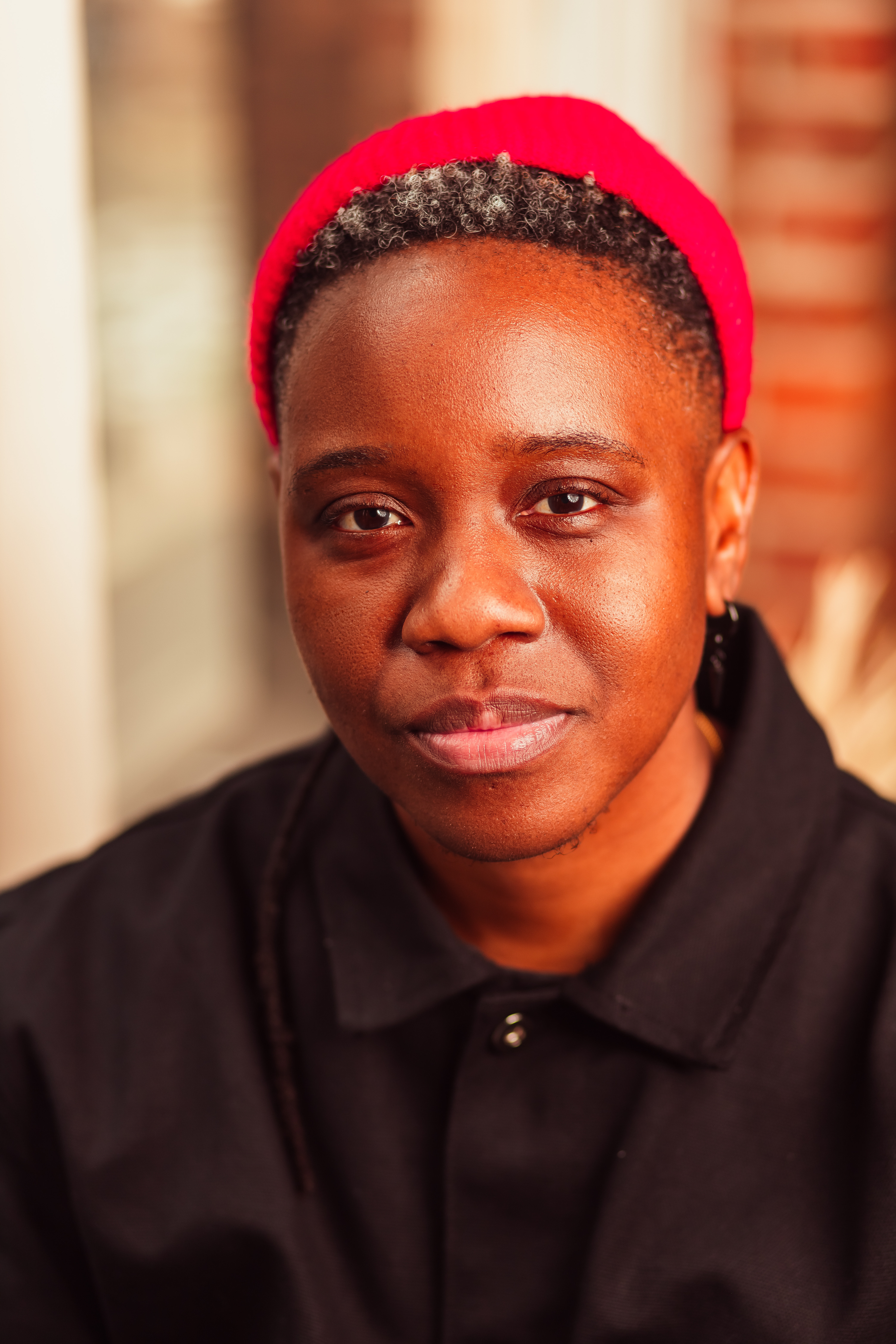 Chari Glogovac-Smith is an NY Emmy-nominated composer and interdisciplinary artist working across sound, performance, and media art. As a performer, their work investigates societal “fault lines”—points of tension and release that impact the human condition. As a media artist, their critical engagement with archives and embodiment operates through, with, and against technology, informed by Black cultural practices, scholarship, and technological methodologies. As a composer, they are known for dense, evolving electronic compositions, experimental classical ensemble pieces, a powerful and delicate singing voice, and multichannel sound installations.
Chari Glogovac-Smith is an NY Emmy-nominated composer and interdisciplinary artist working across sound, performance, and media art. As a performer, their work investigates societal “fault lines”—points of tension and release that impact the human condition. As a media artist, their critical engagement with archives and embodiment operates through, with, and against technology, informed by Black cultural practices, scholarship, and technological methodologies. As a composer, they are known for dense, evolving electronic compositions, experimental classical ensemble pieces, a powerful and delicate singing voice, and multichannel sound installations.
Recent works include Speculative Landscapes, an archival project using embodied mapping to document sites tied to the Gullah-Geechee in South Carolina; Breaking Time, a large ensemble piece premiered in 2025 with the Seattle Modern Orchestra; and MUTATE, a large-scale installation and performance that created an archive in a 20,000-square-foot Seattle Steamplant to house Black cultural artifacts. Building on MUTATE, their current research focuses on building a performable archive in three-dimensional digital space.
Dr. Glogovac-Smith holds a BA in Public Health from the University of Nevada, Reno; an MFA in Composition and Electronic Music from Mills College; and a Ph.D. in Digital Art and Experimental Media from the University of Washington. They are currently Assistant Professor of Black Media Practices at UC Santa Cruz.
![Photographic portrait of Dr Tania Pérez-Bustos, a LatinX [or Latina?] woman facing the camera with short brown bobbed hair and round glasses, wears a white top and a denim jacket, smiles while looking direct at the camera. Tania is pictured outside with green trees in the background.](https://4sonline.org/photos/ART-WORLDS_Tania_Perez-Bustos_07182025095919.JPG) Tania Pérez-Bustos
Tania Pérez-Bustos
I am a feminist scholar working on technologies and knowledge dialogues. I currently focus my research interests on handmade textiles as technologies of knowledge and care. I am co-founder of Artesanal Tecnológica an interdisciplinary feminist sewing/collective/laboratory interested in the knowledges dialogues between artisanal textile making and other technologies. I am full professor at the School of Gender Studies in the National University of Colombia. I am interested in transdisciplinary work from which to explore methodologies that enable transformative research and pedagogies.
 Althea Rao is an artist and researcher working critically with data as infrastructure, participatory systems and multispecies intelligence. Her practice explores the intersection of computation, materiality, performance and collective agency, often engaging audiences in playful, embodied interactions that challenge dominant narratives and systemic power structures.
Althea Rao is an artist and researcher working critically with data as infrastructure, participatory systems and multispecies intelligence. Her practice explores the intersection of computation, materiality, performance and collective agency, often engaging audiences in playful, embodied interactions that challenge dominant narratives and systemic power structures.
Rao has lived and worked in China, Japan, and the U.S., with a background in journalism, media arts, and filmmaking. She is a PhD Candidate at DXARTS at the University of Washington, and her work has been supported by fellowships and residencies at the Coalesce Center of Biological Arts, Seattle Opera, MIT Feminist Future(s) Hackathon, Theater MITU Hybrid Art Lab, More Art, Artspace New Haven, Flaherty Film Seminar, NYFA, Signal Culture, and Halcyon Arts Lab.
In addition to her artistic practice, she writes for Chinese readers about gender justice and translates manifestos, film scripts, poetry and resources for domestic violence survivors between English and Chinese. Prior to pursuing her PhD, she worked professionally as a project manager. Rao will join San Jose State University in fall 2025 as an assistant professor of digital media art with a focus on creative code and AI.
![Photographic portrait of Sadaf Sadri, a young [?] women facing the camera with her arms crossed out in front sitting on a chair in front of a iron gate. Her face is in shadow and she wears a purple hoodie and trousers. Sadaf looks direct at the camera.](https://4sonline.org/photos/ART-WORLDS_SadafHeadshot_07182025100125.JPG) Sadaf Sadri makes work that explores worldbuilding that prompts reflection on gender, ideology, power, and relationality using digital technologies. In this exploration, they are inspired by Islamic institutions of patterns, Shia iconography, and occult sciences. Sadaf is particularly interested in how art can imagine new modes of collectivity within virtual spaces and the decentralized web. They are currently a PhD student at the Center for Digital Arts and Experimental Media at the University of Washington. In 2022, they co-founded the SPAM New Media Festival, a platform for experimental practices in art and technology in Seattle, where they currently live.
Sadaf Sadri makes work that explores worldbuilding that prompts reflection on gender, ideology, power, and relationality using digital technologies. In this exploration, they are inspired by Islamic institutions of patterns, Shia iconography, and occult sciences. Sadaf is particularly interested in how art can imagine new modes of collectivity within virtual spaces and the decentralized web. They are currently a PhD student at the Center for Digital Arts and Experimental Media at the University of Washington. In 2022, they co-founded the SPAM New Media Festival, a platform for experimental practices in art and technology in Seattle, where they currently live.
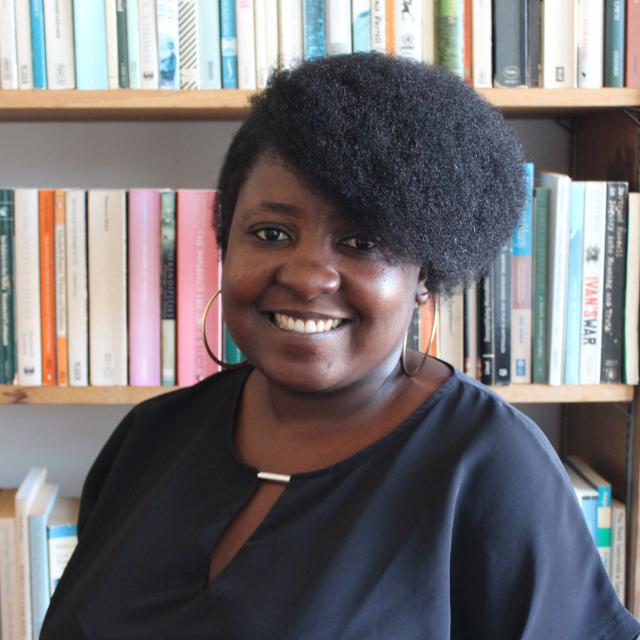 Nikiwe Solomon is an early career researcher and senior lecturer working at the interface of science, technology, politics and urban river and water management in the Environmental Humanities South Centre and Anthropology Department at the University of Cape Town, South Africa. Her research focus is on how human and ecological well-being and issues of sustainability are entangled with politics, economics and technology. Nikiwe served as a research fellow in the Seed Box project, Feminist and Anticolonial Approaches to Environmental Humanities and Justice in the Global South with research focusing on flows – of currents (water and capital), toxics and cement. Nikiwe currently serves as Cape Town site PI for the project Critical Zones Africa: South and East Studies (CzASE Studies) which, for the next four years, aims to develop research on material flows in the Critical Zone that shape the everyday, and how tracing lived experience can inform governance for more habitable urban and peri-urban spaces.
Nikiwe Solomon is an early career researcher and senior lecturer working at the interface of science, technology, politics and urban river and water management in the Environmental Humanities South Centre and Anthropology Department at the University of Cape Town, South Africa. Her research focus is on how human and ecological well-being and issues of sustainability are entangled with politics, economics and technology. Nikiwe served as a research fellow in the Seed Box project, Feminist and Anticolonial Approaches to Environmental Humanities and Justice in the Global South with research focusing on flows – of currents (water and capital), toxics and cement. Nikiwe currently serves as Cape Town site PI for the project Critical Zones Africa: South and East Studies (CzASE Studies) which, for the next four years, aims to develop research on material flows in the Critical Zone that shape the everyday, and how tracing lived experience can inform governance for more habitable urban and peri-urban spaces.
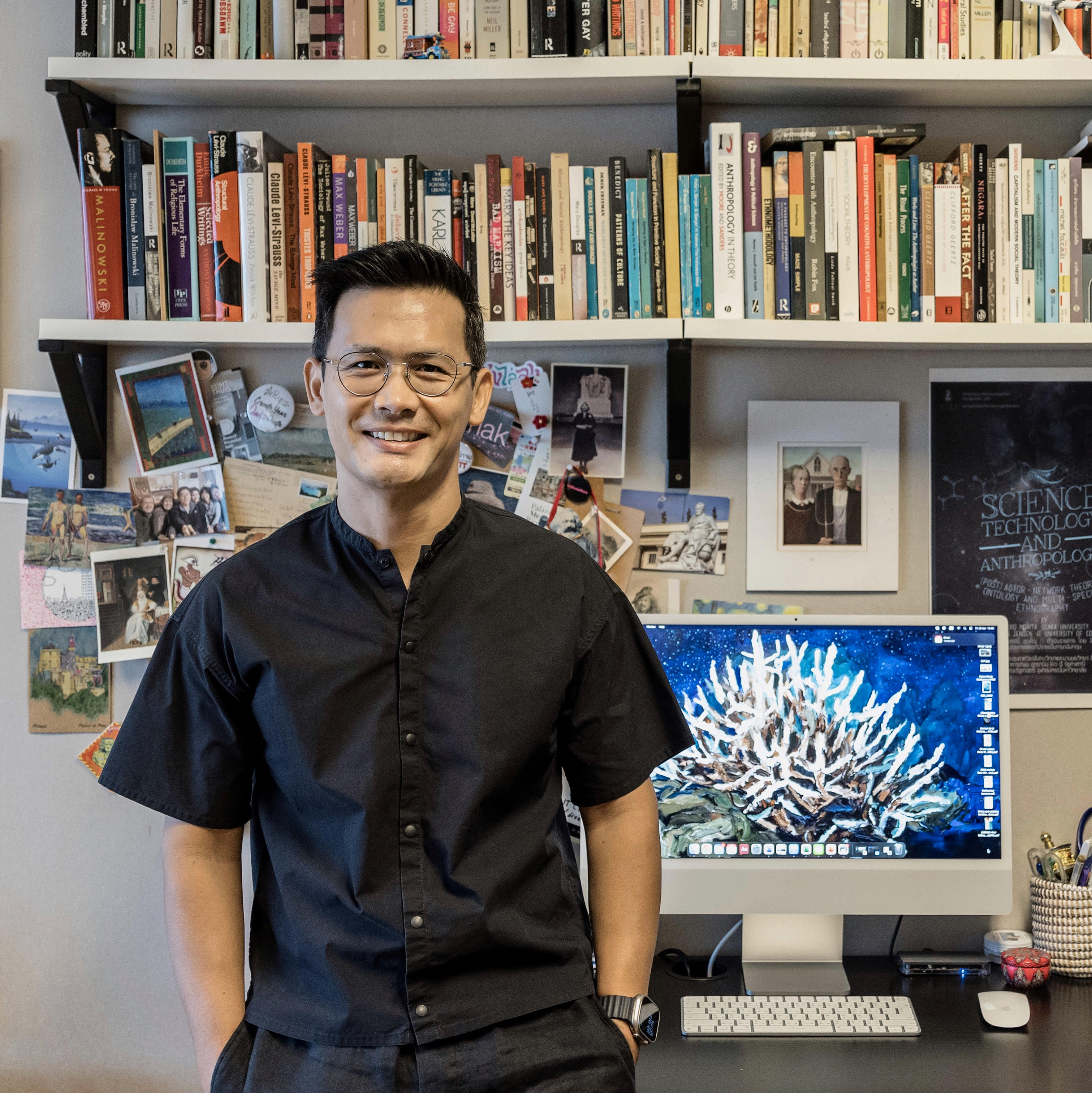 Jakkrit Sangkhamanee is Associate Professor of Anthropology at Chulalongkorn University in Bangkok, Thailand. His research explores the entanglements of environmental infrastructure, posthuman ecologies, and speculative urbanism through the lens of STS. Trained as both anthropologist and scuba diver, his work moves across flood-prone city and delta, underwater ecologies, and bureaucratic corridors to trace how water—both as substance and semiotics—shapes socio-technical imaginaries and cosmopolitical formations.
Jakkrit Sangkhamanee is Associate Professor of Anthropology at Chulalongkorn University in Bangkok, Thailand. His research explores the entanglements of environmental infrastructure, posthuman ecologies, and speculative urbanism through the lens of STS. Trained as both anthropologist and scuba diver, his work moves across flood-prone city and delta, underwater ecologies, and bureaucratic corridors to trace how water—both as substance and semiotics—shapes socio-technical imaginaries and cosmopolitical formations.
He is the author of Thalasso-anthropology, a Thai-language book that delves into technology, multispecies entanglements, materiality, and speculative stories from beneath the ocean. Jakkrit’s recent projects engage with megaprojects along the Gulf of Thailand, theorizing “speculature” as the entwinement of speculation and infrastructure in climate adaptation efforts. His work brings together speculative ethnography, urban anthropology, and cosmopolitical inquiry to understand how futures are assembled through materials, atmospheres, and affects. He is a frequent contributor to academic and public discussions on water ontology and climate politics in Thailand and Southeast Asia.
At 4S, he brings reverberations from Bangkok’s wet ecologies and imaginaries into dialogue with global water politics—thinking through how infrastructural desires and amphibious lifeworlds resonate across scales and geographies.
![Photographic portrait of Dr. Andrea Ballestero, a senior LatinX [or Latina?] woman facing the camera with short brown and grey bobbed hair and thick black rimmed glasses. She smiles direct at camera with red lipstick and a red and pink patterned shirt, cropped at the shoulders.](https://4sonline.org/photos/WATER_Andrea_07182025100313.JPG) Andrea Ballestero is Associate Professor of Anthropology and Director of the Ethnography Studio at the University of Southern California. Her book A Future History of Water (Duke 2019) examines how people engage with the world as it is, but differently and do so by creating endless bifurcations. In Costa Rica and Brazil, where the ethnography is located, bifurcations are means to create a difference between water as a human right and water as a commodity as material and political projects. She is co-editor of Experimenting with Ethnography: A Companion to Analysis (2021), a collection of essays and protocols to inspire creative analytic ethnographic work. Currently, Dr. Ballestero is writing a book that explores cultural imaginaries of the underground as a new planetary frontier. In recent publications she has explored aquifers as financial frontiers, practices of touching with light through GIS technologies, physical models as hydro-geo-social choreographies of responsibility, and the concept of casual planetarities. Her scholarship is located at the intersection of feminist STS, legal anthropology, and social studies of finance and has been supported by the National Science Foundation, the Mellon Foundation, the Wenner Gren Foundation, the Social Science Research Council, and the Fulbright program. Her works can be found at https://andreaballestero.com
Andrea Ballestero is Associate Professor of Anthropology and Director of the Ethnography Studio at the University of Southern California. Her book A Future History of Water (Duke 2019) examines how people engage with the world as it is, but differently and do so by creating endless bifurcations. In Costa Rica and Brazil, where the ethnography is located, bifurcations are means to create a difference between water as a human right and water as a commodity as material and political projects. She is co-editor of Experimenting with Ethnography: A Companion to Analysis (2021), a collection of essays and protocols to inspire creative analytic ethnographic work. Currently, Dr. Ballestero is writing a book that explores cultural imaginaries of the underground as a new planetary frontier. In recent publications she has explored aquifers as financial frontiers, practices of touching with light through GIS technologies, physical models as hydro-geo-social choreographies of responsibility, and the concept of casual planetarities. Her scholarship is located at the intersection of feminist STS, legal anthropology, and social studies of finance and has been supported by the National Science Foundation, the Mellon Foundation, the Wenner Gren Foundation, the Social Science Research Council, and the Fulbright program. Her works can be found at https://andreaballestero.com
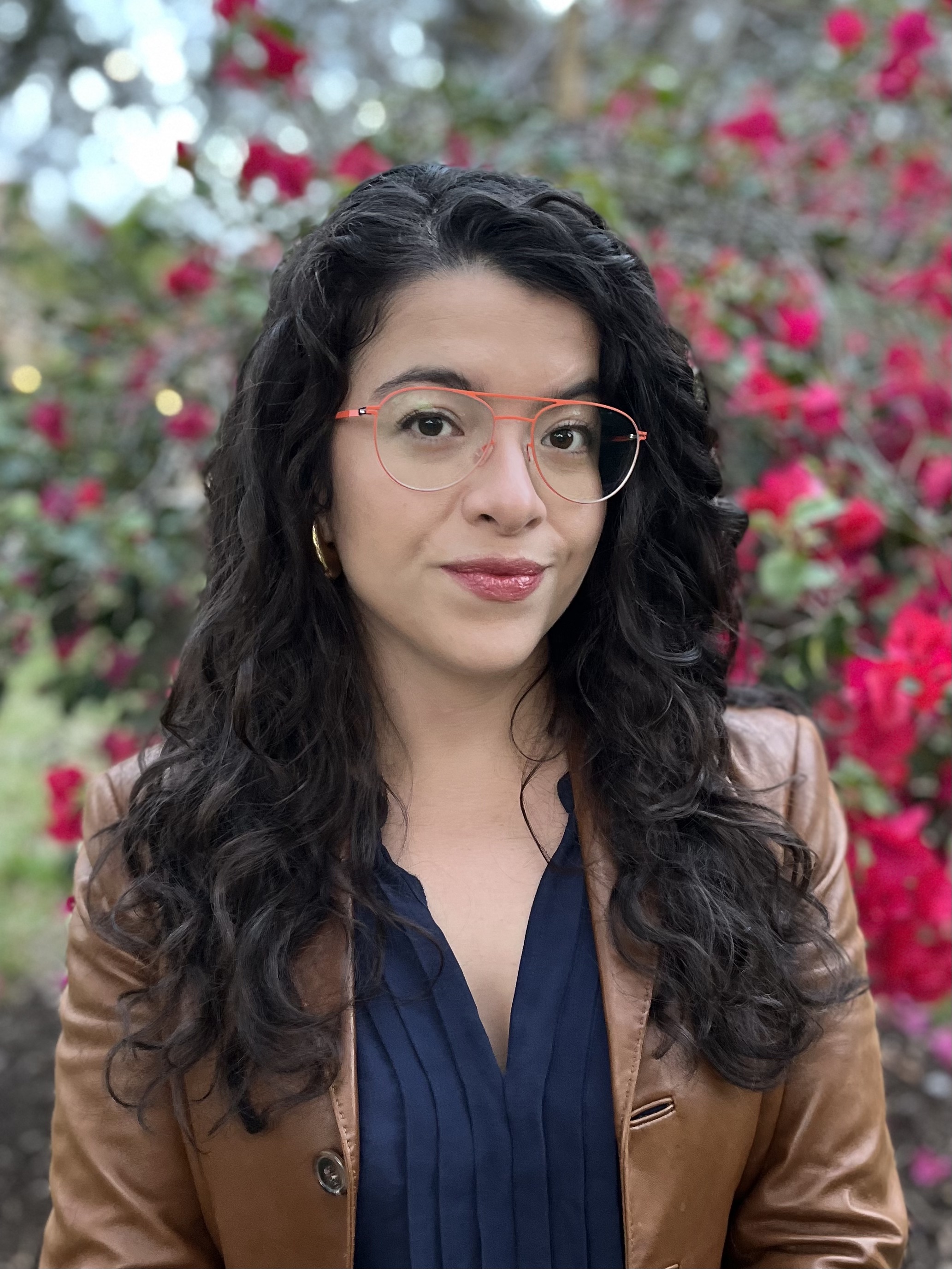 Diana Ruíz is a Latina feminist media scholar who studies the sociotechnical infrastructures of bordering regimes and the ways in which artists and activists counter or remediate border technologies. By bridging studies of carceral optics and oppositional visual practices, she situates readings of emergent forms of data capture within a longer historical continuum of settler colonial visual regimes and community-based resistance. Dr. Ruíz is Assistant Professor of Cinema & Media Studies at the University of Washington, Seattle, where she also holds adjunct faculty appointments in the departments of Gender, Women & Sexuality Studies, Comparative Histories of Ideas, and Human Centered Design & Engineering.
Diana Ruíz is a Latina feminist media scholar who studies the sociotechnical infrastructures of bordering regimes and the ways in which artists and activists counter or remediate border technologies. By bridging studies of carceral optics and oppositional visual practices, she situates readings of emergent forms of data capture within a longer historical continuum of settler colonial visual regimes and community-based resistance. Dr. Ruíz is Assistant Professor of Cinema & Media Studies at the University of Washington, Seattle, where she also holds adjunct faculty appointments in the departments of Gender, Women & Sexuality Studies, Comparative Histories of Ideas, and Human Centered Design & Engineering.
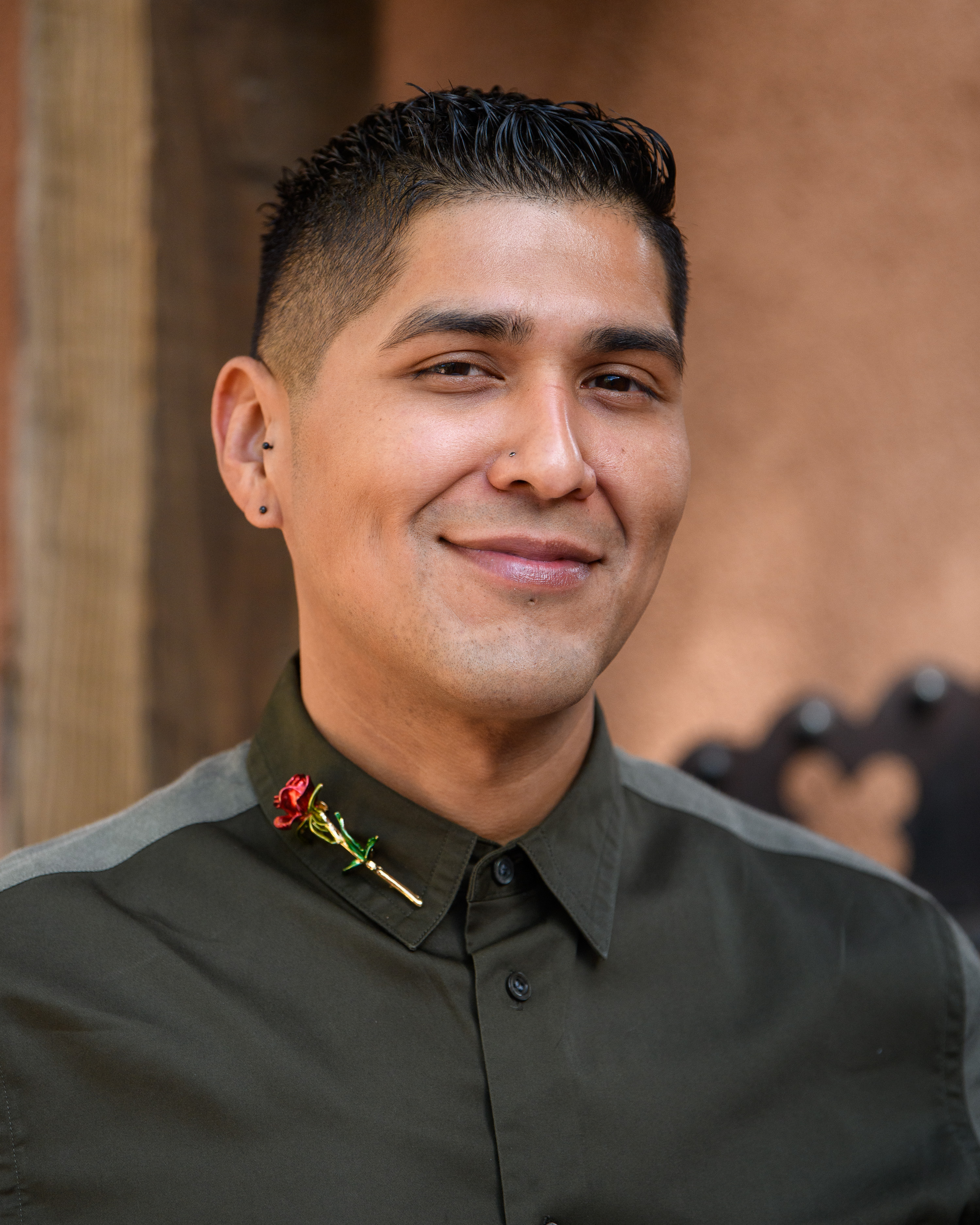 Lupe Flores is a sociocultural anthropologist and assistant professor in the Department of American Ethnic Studies at the University of Washington, Seattle. He was the 2024-2025 Andrew W. Mellon Foundation Fellow in Latino Studies at the School for Advanced Research. Lupe’s interests span the anthropology of borders and the state, critical ethnic and migration studies, Chicanx/Latinx studies, feminist surveillance studies and STS. Specifically, his ethnographic work investigates the consequences of punitive asylum policies and digital innovation projects in Mexico and the US, scrutinizing the digitalization of transnational security state practices alongside the implementation of humanitarian interventions in the management of global asylum migration. Through his research with asylum seekers, aid workers, software engineers and government officials, he showcases how security logics and bordering practices emerge through state, expressive and popular cultural forms that are enacted, experienced and resisted across the digital Mexico-US borderlands in the twenty-first century.
Lupe Flores is a sociocultural anthropologist and assistant professor in the Department of American Ethnic Studies at the University of Washington, Seattle. He was the 2024-2025 Andrew W. Mellon Foundation Fellow in Latino Studies at the School for Advanced Research. Lupe’s interests span the anthropology of borders and the state, critical ethnic and migration studies, Chicanx/Latinx studies, feminist surveillance studies and STS. Specifically, his ethnographic work investigates the consequences of punitive asylum policies and digital innovation projects in Mexico and the US, scrutinizing the digitalization of transnational security state practices alongside the implementation of humanitarian interventions in the management of global asylum migration. Through his research with asylum seekers, aid workers, software engineers and government officials, he showcases how security logics and bordering practices emerge through state, expressive and popular cultural forms that are enacted, experienced and resisted across the digital Mexico-US borderlands in the twenty-first century.
![Photographic portrait of Dr. Darren Byler, a [?] man faces direct to the camera with a smile. He has cropped light brown hair and a beard, and wears a grey shirt and grey cardigan. He is depicted behind an digital-abstract panel of earthy tones.](https://4sonline.org/photos/BORDERS_Byler_Headshot_2021.v2.crop.1000px_07182025100456.PNG) Darren Byler is an anthropologist in the School for International Studies at Simon Fraser University. His research focuses on the Uyghur people in China, surveillance technologies and colonial racial capitalism. He is the author of Terror Capitalism: Uyghur Dispossession and Masculinity in a Chinese City, co-winner of the 2023 Gregory Bateson Award from the Society for Cultural Anthropology and the 2023 Margaret Mead Award from the Society for Applied Anthropology. He is also author of In the Camps: China's High-Tech Penal Colony, which investigates the surveillance and internment of Uyghurs in Xinjiang. In public-facing work, he has served as the lead editor of the Xinjiang Documentation Project which features personal testimonies and archives the ongoing detention of Turkic Muslims in China and the erasure of their native knowledge. As part of his work in amplifying the voices of Uyghur cultural leaders he has co-translated a novel titled The Backstreets. The novel is written by a leading Uyghur author Perhat Tursun who disappeared into the internment camp system in Northwest China in 2018. Following its publication, it was named one of the “best books of 2022” by The New Yorker and described by The Atlantic as “a near perfect work of art.”
Darren Byler is an anthropologist in the School for International Studies at Simon Fraser University. His research focuses on the Uyghur people in China, surveillance technologies and colonial racial capitalism. He is the author of Terror Capitalism: Uyghur Dispossession and Masculinity in a Chinese City, co-winner of the 2023 Gregory Bateson Award from the Society for Cultural Anthropology and the 2023 Margaret Mead Award from the Society for Applied Anthropology. He is also author of In the Camps: China's High-Tech Penal Colony, which investigates the surveillance and internment of Uyghurs in Xinjiang. In public-facing work, he has served as the lead editor of the Xinjiang Documentation Project which features personal testimonies and archives the ongoing detention of Turkic Muslims in China and the erasure of their native knowledge. As part of his work in amplifying the voices of Uyghur cultural leaders he has co-translated a novel titled The Backstreets. The novel is written by a leading Uyghur author Perhat Tursun who disappeared into the internment camp system in Northwest China in 2018. Following its publication, it was named one of the “best books of 2022” by The New Yorker and described by The Atlantic as “a near perfect work of art.”



![Photographic portrait of Dr Tania Pérez-Bustos, a LatinX [or Latina?] woman facing the camera with short brown bobbed hair and round glasses, wears a white top and a denim jacket, smiles while looking direct at the camera. Tania is pictured outside with green trees in the background.](https://4sonline.org/photos/ART-WORLDS_Tania_Perez-Bustos_07182025095919.JPG)

![Photographic portrait of Sadaf Sadri, a young [?] women facing the camera with her arms crossed out in front sitting on a chair in front of a iron gate. Her face is in shadow and she wears a purple hoodie and trousers. Sadaf looks direct at the camera.](https://4sonline.org/photos/ART-WORLDS_SadafHeadshot_07182025100125.JPG)


![Photographic portrait of Dr. Andrea Ballestero, a senior LatinX [or Latina?] woman facing the camera with short brown and grey bobbed hair and thick black rimmed glasses. She smiles direct at camera with red lipstick and a red and pink patterned shirt, cropped at the shoulders.](https://4sonline.org/photos/WATER_Andrea_07182025100313.JPG)


![Photographic portrait of Dr. Darren Byler, a [?] man faces direct to the camera with a smile. He has cropped light brown hair and a beard, and wears a grey shirt and grey cardigan. He is depicted behind an digital-abstract panel of earthy tones.](https://4sonline.org/photos/BORDERS_Byler_Headshot_2021.v2.crop.1000px_07182025100456.PNG)

